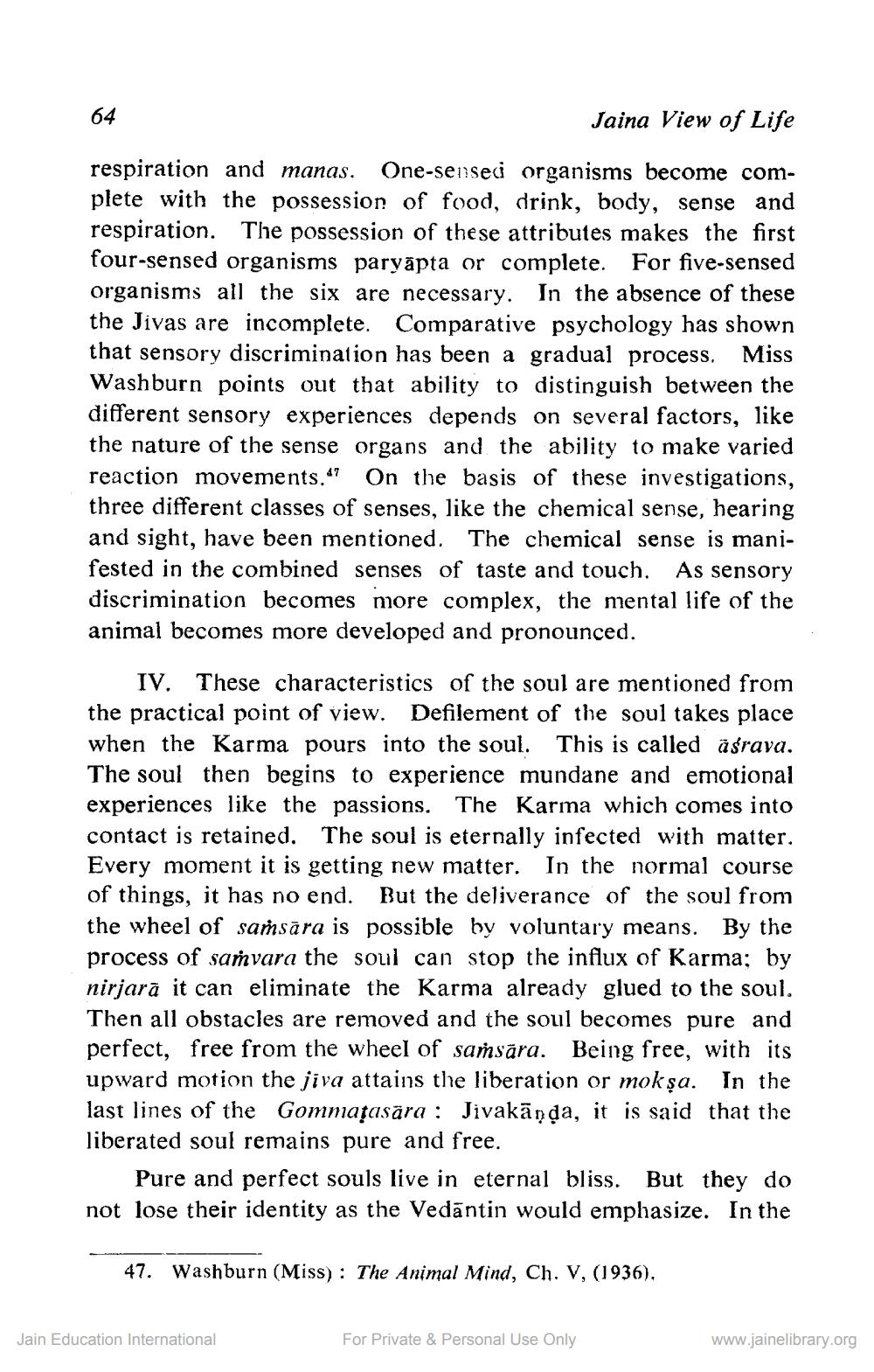________________
Jaina View of Life
respiration and manas. One-sensed organisms become complete with the possession of food, drink, body, sense and respiration. The possession of these attributes makes the first four-sensed organisms pary apta or complete. For five-sensed organisms all the six are necessary. In the absence of these the Jivas are incomplete. Comparative psychology has shown that sensory discrimination has been a gradual process. Miss Washburn points out that ability to distinguish between the different sensory experiences depends on several factors, like the nature of the sense organs and the ability to make varied reaction movements.47 On the basis of these investigations, three different classes of senses, like the chemical sense, hearing and sight, have been mentioned. The chemical sense is manifested in the combined senses of taste and touch. As sensory discrimination becomes more complex, the mental life of the animal becomes more developed and pronounced.
64
IV. These characteristics of the soul are mentioned from the practical point of view. Defilement of the soul takes place when the Karma pours into the soul. This is called asrava. The soul then begins to experience mundane and emotional experiences like the passions. The Karma which comes into contact is retained. The soul is eternally infected with matter. Every moment it is getting new matter. In the normal course of things, it has no end. But the deliverance of the soul from the wheel of samsara is possible by voluntary means. By the process of samvara the soul can stop the influx of Karma; by nirjara it can eliminate the Karma already glued to the soul. Then all obstacles are removed and the soul becomes pure and perfect, free from the wheel of samsara. Being free, with its upward motion the jiva attains the liberation or mokṣa. In the last lines of the Gommaṭasāra Jivakāṇḍa, it is said that the liberated soul remains pure and free.
Pure and perfect souls live in eternal bliss. But they do not lose their identity as the Vedantin would emphasize. In the
47. Washburn (Miss): The Animal Mind, Ch. V, (1936).
Jain Education International
For Private & Personal Use Only
www.jainelibrary.org




